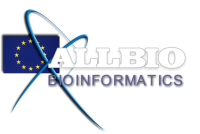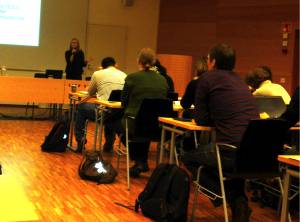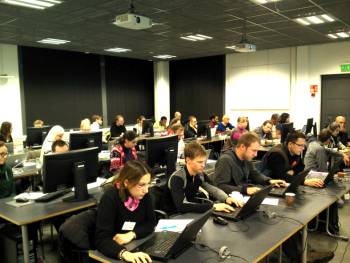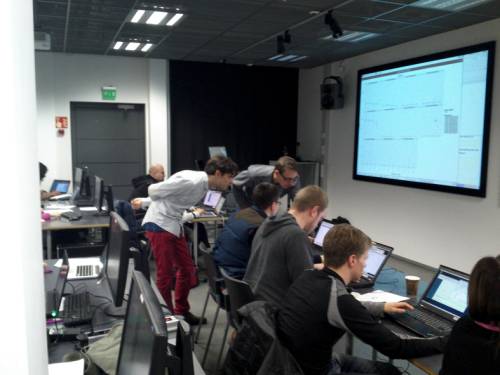
If you are interested in participating this Coordination Action please contact us!
8th - 10th January 2014
Helsinki, Finland
http://www.csc.fi/english/csc/courses/archive/rnaseq2014
Program
Thursday 9.1.2014
 Session III: Transcriptome assembly
Session III: Transcriptome assembly
10:00-10:30 Introduction to transcriptome assembly (Panu Somervuo, University of Helsinki, Finland) 10:30-11:00 Assessment of transcript reconstruction methods for RNA-seq (Pär Engström, SciLifelab, Sweden) 11:00-11:30 Targeted assembly of RNA-seq data using phylogenetic information (Ari Löytynoja, University of Helsinki, Finland) Session IV: miRNA-seq data analysis 11:30-12:20 Introduction to small RNA sequence analysis with applications in nematodes (Garry Wong, UEF, Finland) Lunch
13:20-14:00 Small RNA data analysis and miRNA discovery in plants and mammalians (Andreas Gisel, ITB, Italy) 14:00-14:50 Joint analysis of miRNA and mRNA expression data (Angel Rubio, CEIT, Spain)
Coffee
BOOKED OUT! 15:00-18:00 Hands-on tutorial 2: Small RNA data analysis (Andreas Gisel CNR-ITB) This tutorial covers a command line based workflow to find known and novel miRNAs using tools like BWA and mirDeep2, so participants should be familiar with Unix. The workflow is developed at ITB, Italy, and it reports the results in a graphical form allowing an easy way to extract the required information.
Wednesday 8.1.2014
Registration and coffee

Session I: Quality control and alignment
Lunch
Session II: Reliability of RNA-seq, differential expression analysis
BOOKED OUT! 15:00-18:00 Hands-on tutorial 1: Differential expression analysis using R/Bioconductor and Unix (Mikael Huss, Pär Engström)
This hands-on session covers quantification and differential expression analysis of RNA-seq data. The analysis tools used in the exercises include command line applications and Bioconductor packages such as Cuffdiff and DESeq2, so participants need to be familiar with Unix and R.

Tuesday 7.1.2014
Coffee
BOOKED OUT! 12:00-15:00 Additional hands-on tutorial 3: RNA-seq data analysis using Chipster (Eija Korpelainen) This tutorial covers quality control (FastQC and PRINSEQ), alignment (TopHat) and quantification (HTSeq) as well as differential expression analysis (edgeR and DESeq) and genome browser visualization. The user-friendly Chipster software is used in the exercises, so no previous knowledge of Unix or R is required and the tutorial is thus suitable for everybody.
This workshop consists of two lecture days and four hands-on sessions. More information and registration can be found here.
Speakers